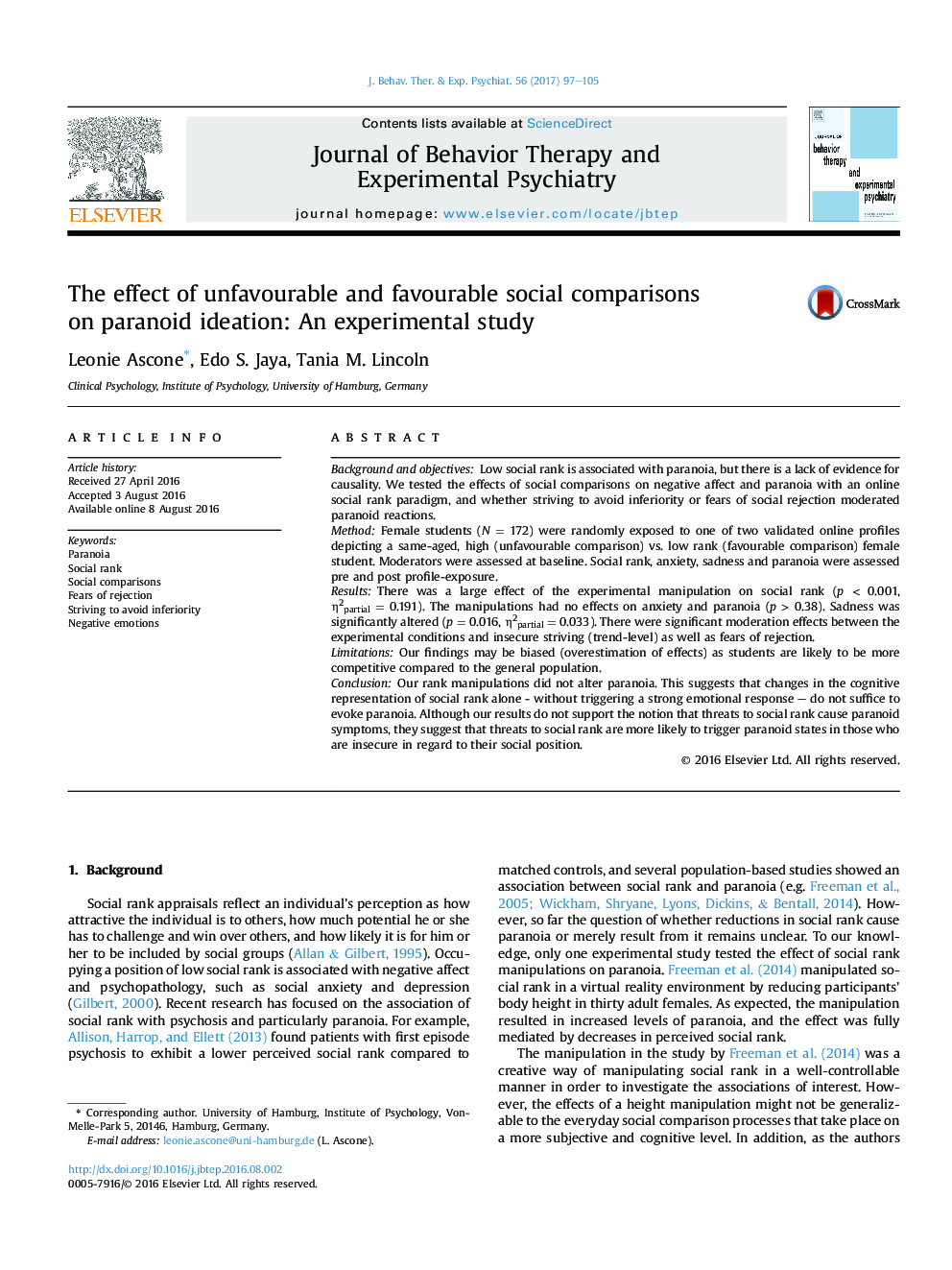| کد مقاله | کد نشریه | سال انتشار | مقاله انگلیسی | نسخه تمام متن |
|---|---|---|---|---|
| 5038990 | 1473060 | 2017 | 9 صفحه PDF | دانلود رایگان |
- Unfavourable and favourable social comparisons change appraisals of social rank.
- Social rank has an effect on sadness, but not on anxiety.
- Changes in social rank are not per se followed by changes in paranoid ideation.
- Insecurity is associated with stronger rank-related changes in paranoia.
- Fear of being rejected due to low rank may be a cognitive vulnerability for paranoia.
Background and objectivesLow social rank is associated with paranoia, but there is a lack of evidence for causality. We tested the effects of social comparisons on negative affect and paranoia with an online social rank paradigm, and whether striving to avoid inferiority or fears of social rejection moderated paranoid reactions.MethodFemale students (N = 172) were randomly exposed to one of two validated online profiles depicting a same-aged, high (unfavourable comparison) vs. low rank (favourable comparison) female student. Moderators were assessed at baseline. Social rank, anxiety, sadness and paranoia were assessed pre and post profile-exposure.ResultsThere was a large effect of the experimental manipulation on social rank (p < 0.001, η2partial = 0.191). The manipulations had no effects on anxiety and paranoia (p > 0.38). Sadness was significantly altered (p = 0.016, η2partial = 0.033). There were significant moderation effects between the experimental conditions and insecure striving (trend-level) as well as fears of rejection.LimitationsOur findings may be biased (overestimation of effects) as students are likely to be more competitive compared to the general population.ConclusionOur rank manipulations did not alter paranoia. This suggests that changes in the cognitive representation of social rank alone - without triggering a strong emotional response - do not suffice to evoke paranoia. Although our results do not support the notion that threats to social rank cause paranoid symptoms, they suggest that threats to social rank are more likely to trigger paranoid states in those who are insecure in regard to their social position.
Journal: Journal of Behavior Therapy and Experimental Psychiatry - Volume 56, September 2017, Pages 97-105
